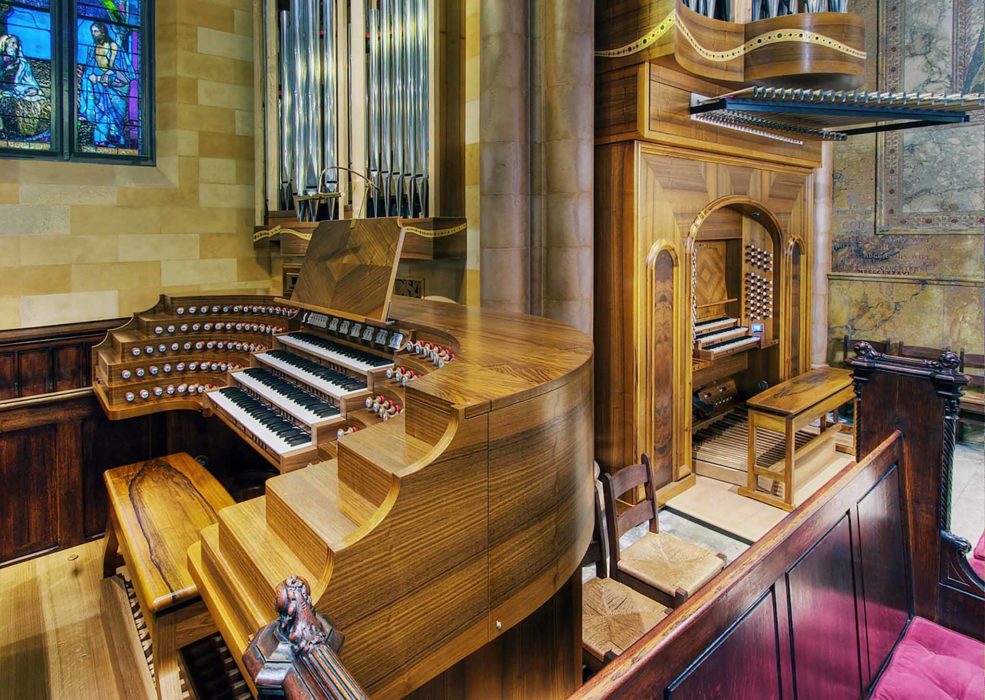CLOUDS HAD GATHERED above Manhattan as the sun dropped to the horizon, and they were expecting rain, but it was still a sweltering 79˚F when ‘Abdu’l-Bahá arrived at the Church of the Ascension at Fifth Avenue and 10th Street in New York, just before 8 p.m. on Sunday, June 3, 1912.
“I suppose nobody is satisfied with all that background of superstition, tradition, mystery and confusion of thought,” Dr. Percy Stickney Grant said, the Rector of the Church, “which in many religions is regarded as the necessary beginning of belief.”
Every Sunday evening at this time, Grant held his “People’s Forum,” an open discussion with a guest speaker that got down to brass tacks on practical issues that mattered to New Yorkers. Back on May 12 Grant had invited ‘Abdu’l-Bahá to return to the Church of the Ascension — where he had given his first American public address on April 14 — to converse with the audience attending this evening’s Forum.
After Grant’s introduction, ‘Abdu’l-Bahá spoke for a few minutes. But it was only when he had finished that the gathering really became a “Forum.” ‘Abdu’l-Bahá took a seat in the middle of the chancel beneath the mural, three stone steps up from the floor of the nave — and he took questions.
They asked him all kinds of things: Is it true that universal peace will only be possible if all countries were democracies? What kinds of food will human beings eat in the future? What is the status of women in the East? Are you the successor to your father, Bahá’u’lláh, like the Pope in Rome is to Christ? What is your attitude toward family life? Is reincarnation true?

Someone also asked him about the different religions. “The religions of God have the same foundation,” ‘Abdu’l-Bahá said, “but the dogmas appearing later have differed.”
“Each of the Divine religions has two aspects,” he continued. “The first is essential. It concerns morality and development of the virtues of the human world.” ‘Abdu’l-Bahá often used this term, the human world, to distinguish humans from the animal kingdom. “This aspect is common to all.”
He also argued that religion comprised a “non-essential” aspect, which addressed particular social needs. “[T]hey undergo change according to the exigency of the time.”
Moses, for example, had made laws for a society that dwelled in the desert. “As there were no penitentiaries, no means of restitution in the desert and wilderness, the laws of God were ‘An eye for an eye, a tooth for a tooth, an ear for an ear.’” But such a law, even a divine law, could have no value in modern times. “Today you have government and organization, a police system, a judge and trial by jury. The punishment and penalty is now different.”
Similarly, Jesus had torn down the Jewish law of divorce, since “in the time of His Holiness Christ,” ‘Abdu’l-Bahá said, “divorces were numerous and the cause of corruption. As they were not suitable for the time He made divorce unlawful, and likewise changed other laws.”
‘Abdu’l-Bahá’s response spoke directly to Grant’s opening comments about religious superstition, tradition, and confusion. The confusion came from holding on to old traditions, which then transformed into superstitions. Percy Stickney Grant had shown his willingness to fight for the new, and his Church of the Ascension exemplified a practical approach to religion for the modern age. “The whole purpose of religion,” Grant had said, “is to make each one of us the strongest personality possible;—to make us progressive factors in the community.”






